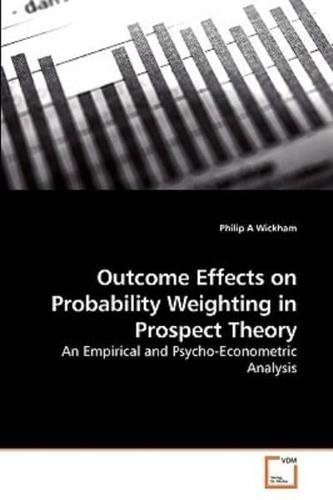Publisher's Synopsis
Prospect Theory is established as the dominant descriptive account of decision under risk. It has been widely adopted in accounting for risk behavior within wide range of biological and social sciences. The monograph provides a comprehensive account of the theoretical aspects of Prospect Theory and its historical development. It locates Prospect Theory within the broader project of generalizing expected utility theory and considers Prospect Theory applications. The monograph provides a detailed discussion of current theoretical and methodological issues in experimental economic psychology. The monograph details experimental evidence that a full account of risk preference must take into account the perceived value of risk gains and losses as a factor in psychological modifications of probability. This expands Prospect Theory's descriptive potential considerably. The monograph will be of interest to anyone concerned with risk behavior in the social and human sciences, especially those with an interest in economic managerial, marketing, financial, medical, legal and political risk decision-making.









